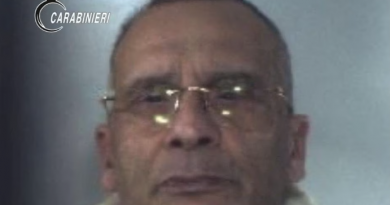Modi faces heavy blows from his rivals over ‘Fishy’ Jet Deal
By Jeffrey Gettleman and Kai Schultz
Prime Minister Narendra Modi of India swept into office four years ago vowing to crush corruption. Some of his most momentous acts since taking office, like wiping out nearly 90 percent of India’s currency virtually overnight, have been to clean up the country’s endemic graft.
Mr. Modi was also quick to accuse the rival Congress Party, India’s longstanding political dynasty, of lavish spending and crony capitalism.
But in the past few weeks, the role of accuser has been dramatically reversed.
The Congress Party, which had seemed anemic since Mr. Modi’s election, has found a new spring in its step by hounding the prime minister over an opaque arms deal that has raised some serious questions.
Why did Mr. Modi renegotiate a deal for 36 fighter jets?
Why was a company run by members of one of India’s wealthiest families chosen to participate in the deal, despite having no experience building jets?
Why did the costs of the planes seem to jump so much?
And why isn’t Mr. Modi sharing more details?
For several years, Indian politics have been dominated by Mr. Modi’s party, the Bharatiya Janata Party, or B.J.P., which has grown accustomed to pushing around its rivals.
But for the first time in a long time, the opposition, by building a damaging narrative around this arms deal, has landed a solid punch, and is hoping to keep the pressure on Mr. Modi and his party ahead of next year’s general election.
Congress Party officials have dominated headlines and social media with their accusations that Mr. Modi inflated the price of the aircraft, estimated to cost $8.7 billion, and brought in a trusted ally on the deal so his political party could get something back in return.
“We smell something fishy,” said Jaiveer Shergill, a Congress Party spokesman.
The story of the jets starts in 2015, when Mr. Modi, on a visit to Paris, proudly announced that he had struck a deal with the French to buy three dozen supersonic Rafale fighter planes. The surprise wasn’t the French partner, Dassault Aviation, maker of the storied Mirage.
What raised eyebrows was a new twist in the deal announced more than a year later. The arrangement included what is called an offset contract in which the French, in return for selling India billions of dollars of planes, would invest in India and help Indian companies build aerospace components.
The lead partner chosen for the offset contract was the Reliance Group, a conglomerate run by members of the Ambani family, one of India’s richest and most ostentatious. While Reliance has long been involved in manufacturing and has billions of dollars in capital, it has no experience making jets. And the Ambanis are known to be strong Modi supporters.
The former French president, François Hollande, added to the controversy surrounding the deal when he said recently that the Modi government had specifically proposed the Ambani-owned company for the offset contract.
“We did not have a say in this,” Mr. Hollande, who was president at the time the deal was made, has been quoted as saying by Mediapart, a French news outlet. “We did not have a choice.”
Mukesh Ambani, the billionaire who built a 27-story house that overlooks slums, is considered one of Mr. Modi’s closest corporate allies.
His younger brother, Anil, runs the Reliance Group, a separate operation from Mukesh’s holdings. Some of the Reliance Group’s business units are struggling, and it recently sold a number of assets to lower its debt load.
Anil has also heaped praise on Mr. Modi, calling him “a king among kings” and likening him to one of the greatest heroes of Hindu mythology.
Though most pundits believe next year’s national elections are still Mr. Modi’s to lose, the contest appears to be tightening. More and more Indians are frustrated with the economy, inflation and Mr. Modi’s lofty but unfulfilled promises to create enough jobs.
So opposition politicians have seized on this jet deal with an almost desperate glee.
Reliance will make an “unwarranted, escalated profit,’’ said Mr. Shergill, the Congress Party spokesman. “How much of a share is the B.J.P. getting out of that profit?”
Rahul Gandhi, the Congress Party leader, put it even more bluntly. On Twitter, he called Mr. Modi the “commander in thief.”
With these accusations swirling around him, Mr. Modi has gone with his usual response: silence.
Rather than speaking out himself, he has deputized party officials and ministers to fend off claims of a quid pro quo between the governing party and Reliance Group. His stand-ins have argued that the details of the agreement, including how the price was set and why Reliance was selected, cannot be revealed because of the contract’s “secrecy clause.”
Analysts say the strategy isn’t working.
“This is a persistent problem with this government,” said Milan Vaishnav, the director of the South Asia Program at the Carnegie Endowment for International Peace. “You have no clear spokesperson with the prime minister’s office, you have no media adviser. I think on many of these issues they often come across as flat-footed or disorganized.”
Until the backlash over the jet deal, Mr. Modi had seemed to float above the most serious allegations against his administration or political party. A shrewd steward of his image, he would draw on his personal story of being the son of a tea seller, a devout Hindu and a prime minister who lives simply.
He has often boasted that his government was clean and that he was a cut above previous prime ministers tainted by corruption. One was Rajiv Gandhi, Rahul’s father, who was suspected of taking millions of dollars in kickbacks in the 1980s from another opaque arms deal, although an Indian court officially cleared him in 2004, 13 years after his assassination.
Now, Mr. Vaishnav said, the opposition can say about Mr. Modi: “You’re just like anybody else.”
India’s Ministry of Defense denied any wrongdoing in the deal, calling the offset contract “a purely commercial arrangement between two private companies.”
An official with Dassault Aviation said in an email that the company chose “our partners freely without pressure from the Indian government.”
Supporters of Mr. Modi argue that the Reliance Group, a conglomerate with thousands of employees and experience working on big infrastructure projects, isn’t such an odd choice as a partner to the deal.
A Reliance spokesperson said that other Indian companies with little track record in defense manufacturing had also jumped into the sector and that this controversy was a “nonissue” stirred up by corporate rivalries.
India’s original plan was to buy 126 Rafale jets, with a large portion of them built in India, for less than $100 million per jet, according to figures provided by Congress Party officials, whose leaders negotiated the first rounds of the deal when they were in power several years ago.
At that time, the leading contender on the India side was Hindustan Aeronautics, a government-owned company with a history of making military aircraft, though its record on deliveries was mediocre.
Under the terms of the deal negotiated by Mr. Modi, the price-per-plane rose enormously, Mr. Gandhi contends, to over $230 million each.
That figure has been contested by defenders of the deal, who say its total price also includes missiles, spare parts and other costs — more than just the planes themselves, which they say individually cost a little more than $100 million each.
One point on which there is widespread agreement: India’s need to update its aging fighter jets. India aspires to be able to wage a two-front war, but analysts say its current air force would be annihilated by a simultaneous attack from China and Pakistan, India’s regional rivals.
While voters may find the murky affair hard to follow, the opposition is likely to do all it can to make sure people don’t forget.
“This is all about optics,” said Harsh V. Pant, an international relations professor at King’s College in London.
“It’s not about bringing anyone to justice or doing anything for the greater good,’’ he added. “It’s all about the 2019 election.”
[First published on New York Times]



